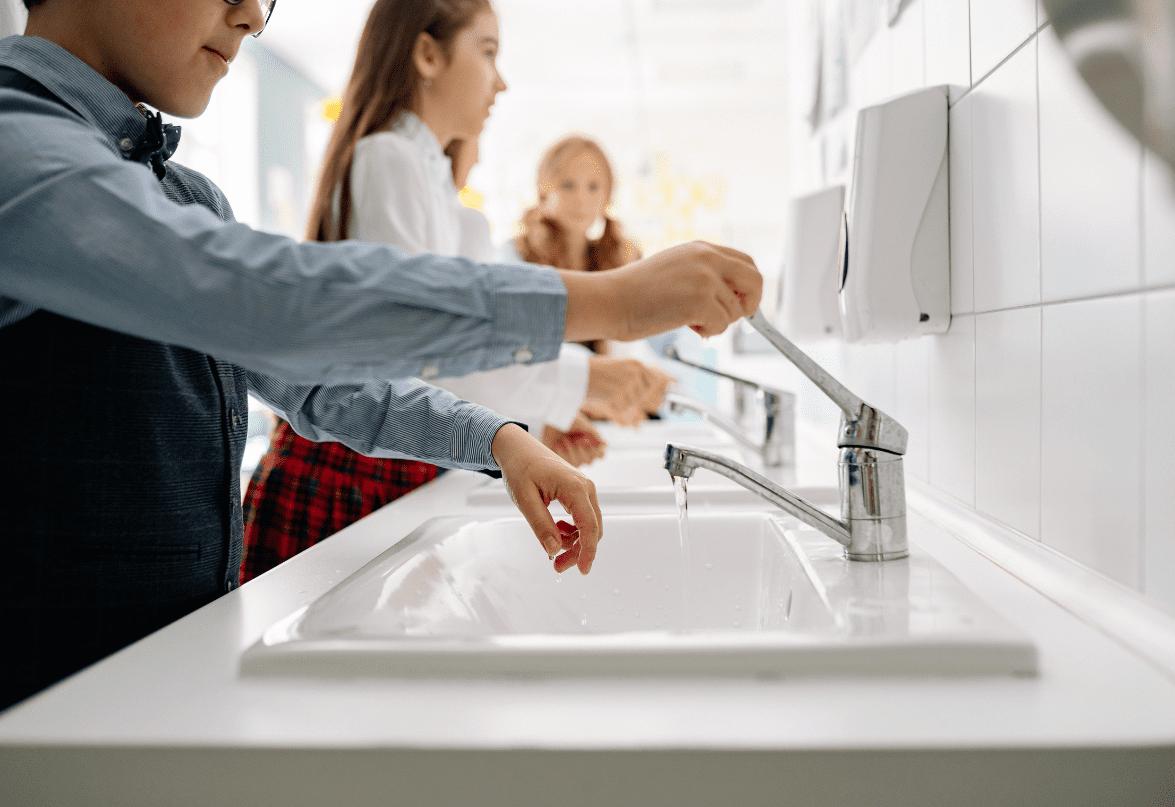Teaching children good hygiene and personal care habits is essential for their health and well-being. These habits, instilled early, can help prevent illnesses, boost self-esteem, and establish a foundation for lifelong healthy practices. Here are five tips to ensure your child develops good hygiene and personal care habits.
Handwashing Techniques
Handwashing is one of the simplest yet most effective ways to prevent the spread of germs and illnesses. Teaching children the proper way to wash their hands is crucial. Here’s how to do it:
- Use soap and water
Encourage your child to wet their hands, apply soap, and scrub all parts of their hands, including between the fingers and under the nails, for at least 20 seconds. Singing the “Happy Birthday” song twice is a good timer.
- Rinse thoroughly
Make sure they rinse all the soap off with clean, running water.
- Dry completely
Use a clean towel or air dry their hands.
Children should wash their hands before eating, using the bathroom, playing outside, and coughing or sneezing.
Oral Hygiene: Brushing and Flossing Teeth
Good oral hygiene prevents cavities, gum disease, and other dental issues. Establishing a routine can help make brushing and flossing a habit:
- Brush twice a day
Teach your child to brush their teeth in the morning and before bed using a pea-sized amount of fluoride toothpaste. Ensure they brush for at least two minutes, covering all tooth surfaces.
- Floss daily
Introduce flossing once your child’s teeth start touching, usually around age two or three. Show them how to gently floss between each tooth to remove food particles and plaque.
- Regular dental check-ups are crucial for maintaining good oral health. Schedule dental visits every six months for professional cleanings and check-ups. These visits can help identify and prevent potential dental issues, ensuring your child’s teeth and gums stay healthy.
Bathing and Grooming
Regular bathing and grooming are essential for keeping your child clean and healthy:
When it comes to bathing, depending on their age and activity level, most children should bathe at least two to three times a week. Ensure they wash their entire body, including behind the ears, neck, and feet. Use mild soap and shampoo to avoid drying out their skin and hair. Mild products are gentle on the skin and hair, maintaining their natural moisture and oils.
- Hair care
Teach your child to wash their hair regularly, using an appropriate shampoo and conditioner. Brush or comb their hair daily to prevent tangles and promote scalp health.
- Nail care
Trim your child’s nails regularly to prevent them from becoming too long or dirty, which can lead to infections or injuries.
Proper Use of Tissues and Covering Coughs
Teaching children how to properly use tissues and cover their coughs can help prevent the spread of germs:
- Use tissues
Show your child how to use tissues to wipe their nose and dispose of them immediately after use. Please encourage them to wash their hands afterward.
- Cover coughs and sneezes
Teach your child to cover their mouth and nose with a tissue or their elbow when they cough or sneeze to prevent spreading germs to others.
Encouraging Independent Hygiene Practices
As children grow, it’s important to encourage independence in their hygiene practices. Here’s how to foster self-reliance:
- Create a routine
Establish a daily hygiene routine that includes brushing teeth, washing hands, bathing, and grooming. Consistency helps make these activities a natural part of their day.
- Make it fun
Use colorful toothbrushes, fun soaps, or reward charts to make hygiene activities enjoyable. Praise and reward your child for following their routine.
- Lead by example
Children often mimic their parents’ behavior. Demonstrate good hygiene habits yourself, and involve your child in your routines to reinforce the importance of personal care.
Conclusion
Teaching children good hygiene and personal care habits is essential for their health and development. By focusing on proper handwashing techniques, oral hygiene, bathing and grooming, proper use of tissues and covering coughs, and encouraging independence, parents can help their children develop lifelong healthy practices. These habits prevent illnesses, boost self-confidence, and foster a sense of responsibility.

